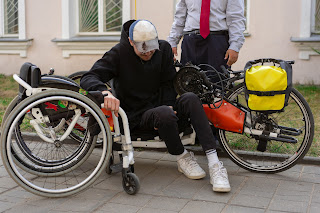John Langdon Down was a British doctor who was the first to fully describe a syndrome that would eventually bear his name. This was back in 1866 but even before that scientists and doctors had described some aspects of Down Syndrome as early as 1838. This affliction is not new, it has been around since time began and today it is the most common of the genetic abnormalities. Down Syndrome is also called Trisomy 21 because it is a mutation on the 21st set of human chromosomes, usually an added portion on one strand or a whole strand unto itself. This is thought to happen when the 21st chromosome fails to separate from either the egg or the sperm cell so that the cell now carries an extra copy onto the next phase of development. It is estimated that eighty-eight percent of cases are caused by the egg failing to separate properly, while only eight percent happen on the sperm side of the equation. The other three percent occurs sometime after the egg and sperm have merged.
Since chromosomes come in pairs, an added one anywhere will be detrimental in some way to the affected person. Down Syndrome happens in one out of every one thousand births and it is totally by chance that it occurs; there is no cure but it can be detected both during pregnancy and after birth quite easily. Babies born with this syndrome have characteristic facial features, physical growth delays, and intellectual disabilities. They usually have a small chin, slanted eyes, a big tongue, extra space between the first and second toe, flexible ligaments, a short neck, and a flat, wide face. Their growth in terms of height is slower than that of an unaffected baby, and they may stutter or have rapid or irregular speech patterns. There is also an increased risk of hearing and vision disorders and lower fertility rates, however, the chance of getting a cancerous tumor is lower as there are more tumor suppressor genes when a person has three chromosomes 21. While many women opt to have a termination when they hear that their baby is afflicted, others have children who then grow up to be loving members of society. Some can hold down jobs and do most things that able-bodied people can do.

Comments
Post a Comment